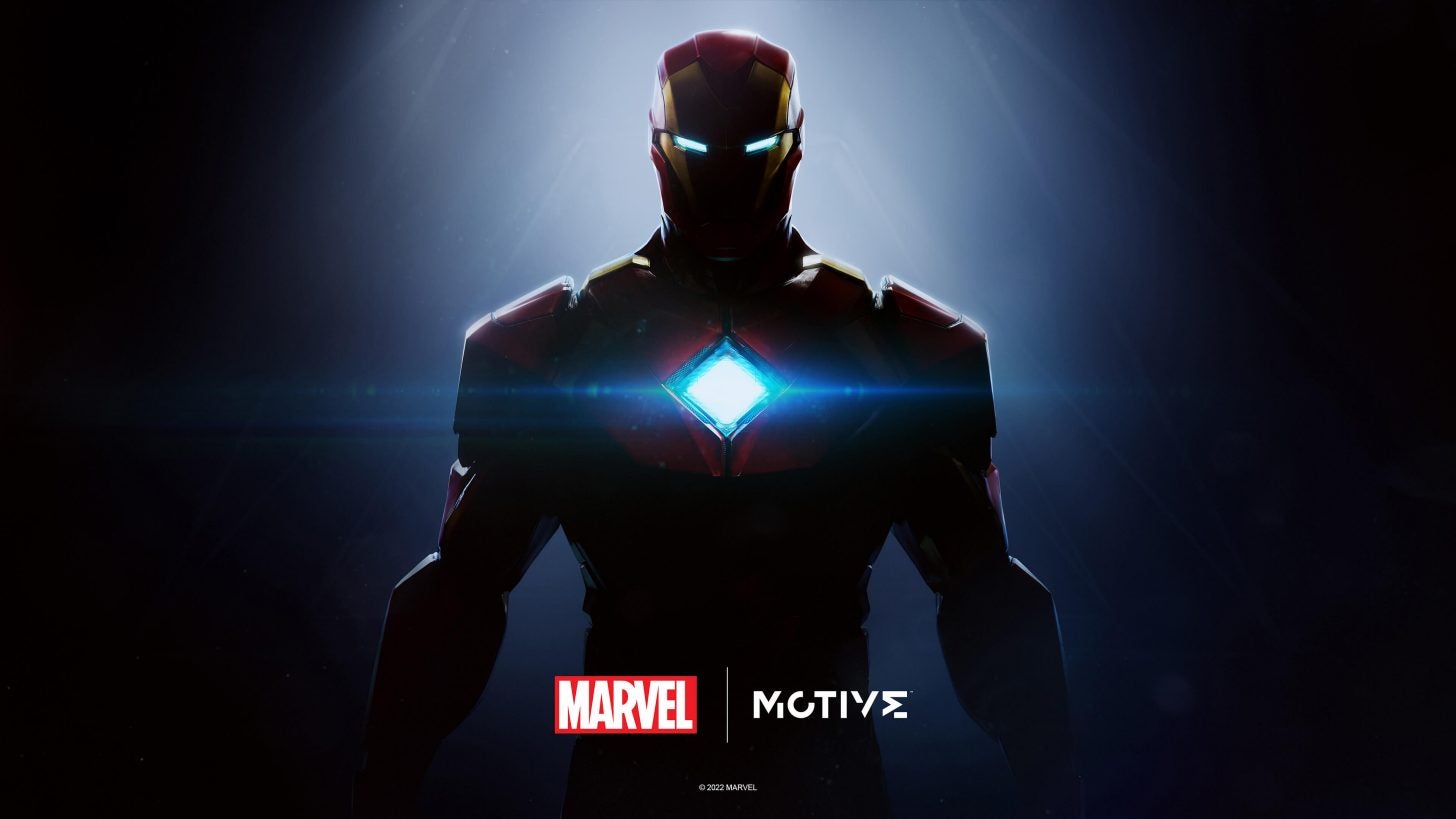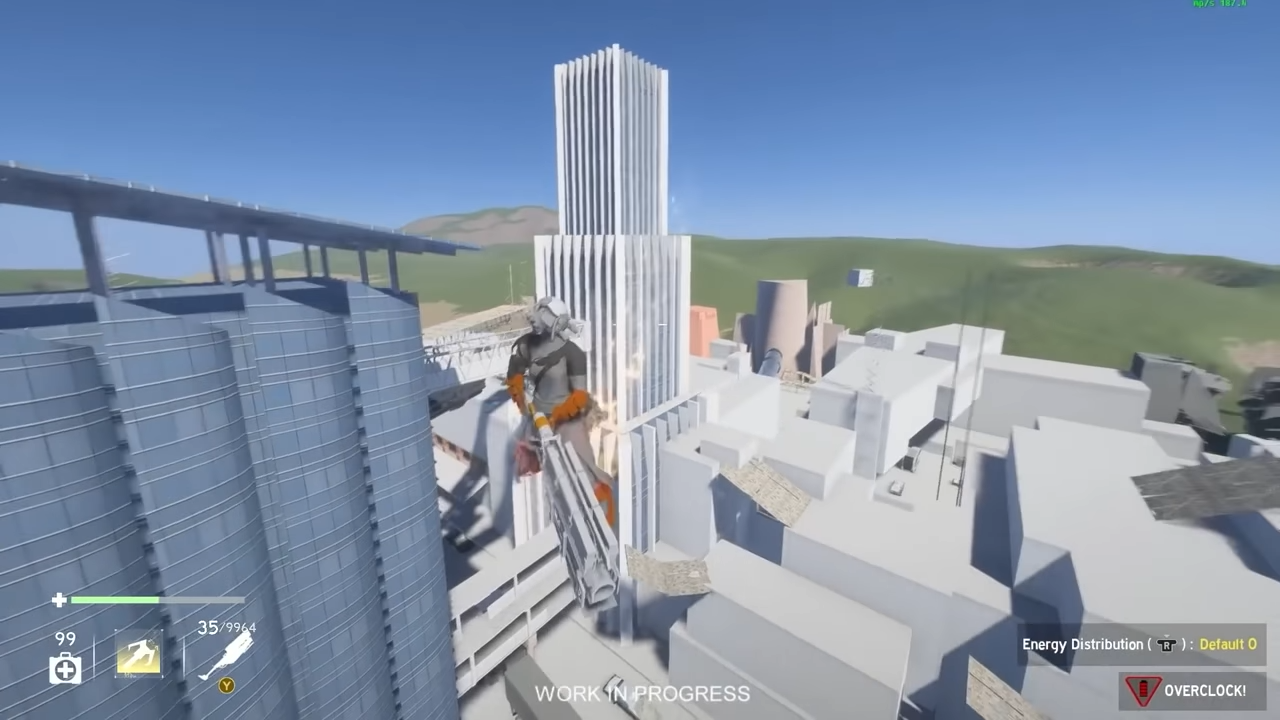Until recently, Motive feels like it has flown under the radar. Founded in 2015 as EA’s new Montreal home for former Assassin’s Creed co-creator Jade Raymond, it took five years for the studio to ship its first game: the generally well-regarded Star Wars Squadrons. By this point, Raymond had already been gone two years - poached by Google to work on the ill-fated Stadia. Meanwhile, an ambitious new IP the studio had been trying to build - shown publicly in 2020 by EA via a brief snippet of concept footage - was still struggling to find direction. “My predecessor had left and it was still a young studio that hadn’t shipped,” Klaus says of Motive, when he joined to replace Raymond in 2019. “Motive had contributed to Battlefront 2’s campaign but was a really young studio, and I would say the first couple of years really have been [about us] searching for our identity and our purpose, like some of those other more established studios.” Motive isn’t yet a household name in the way other EA teams like BioWare or Criterion might be, Klaus agrees - but that, he hopes, will change. “I remember, literally the first day I joined, I did an open AMA kind of thing, and one of the employees asked me what my vision was for the studio,” Klaus recalls. “And I was like, ‘hang, on a minute, give me time - I want to listen to all of you figure out what you like doing’. What are our teams passionate about? What would EA like us to be tactically, strategically? [Let’s] see if we can find that place. And it took a little bit of time, it took us shipping [Star Wars Squadrons]. Because success breeds success and it brings confidence.” By the time Klaus joined, Motive was already working on Star Wars Squadrons following a successful pitch to EA top brass. Seeing it launch the following year was a milestone for Motive, Klaus remembers. “It was huge for confidence,” he says. “Talking is important, words are important, but walking the walk and delivering is pretty crucial in our industry.” From there, the plan was for Motive to release its own new IP, a project codenamed Gaia it had been incubating for years behind closed doors. EA showed a few seconds of basic test footage at E3 2020, where a character could be seen flying over buildings using a jetpack, before moving some physics-based blocks. It was described as “a highly ambitious, innovative new game” that puts “power and creativity in your hands”. Ultimately, however, the project could not find its feet. “We had a real good crack at it,” Klaus says. “The search was for gameplay breakthroughs, and through prototyping, through iteration, trying different things that were going to bring some new gameplay experiences,” he continues. “Something that was going to be fresh, unique, that could create some kind of autonomy to the player - be it in a creative or narrative [way]… We were fiddling with those things, some pretty cool things. After two years of conception I decided, with the support of [EA] headquarters, to pull the plug. The level of risk - in order to have a commercial success when we were a relatively young studio - was just that little bit too high. “Cancellations in video game development shouldn’t be a taboo thing,” he continues. “There’s nothing taboo [about it]. It’s part of the creative process and the uncertainty that comes with exploring different things. The one thing that I thought was really important at the time is that this wasn’t an executive EA headquarters call. It was our call. It was our call to say, considering where we were as a studio - a relatively young studio, a new team, [that it was] very ambitious. We didn’t want to bite more than we could chew. And a new IP, going all-in as a studio… considering you’ve got families… You want to make sure you’ve got sustainability and you set the teams up for success and I take that responsibility of calculated risk taking very seriously.”
2015 - Motive founded 2018 - Raymond departs 2019 - Klaus joins 2020 - SW Squadrons launches 2021 - Gaia development ends 2023 - Dead Space released
So, what then for Motive? “You need some good Plan B’s in order to continue to build a studio,” Klaus says, “and you know, those Plan B’s very often end up being amazing Plan A’s. Dead Space was the first thing, in order for us to step up and have more ambition, and then with Iron Man we’ve got the opportunity to take things to a whole new level.” Not everyone at Motive was initially sold on the idea of reviving Dead Space. The sci-fi survival horror series was created by the now-shuttered EA studio Visceral, while many of that team’s former employees were now at the Krafton-owned Striking Distance Games, quietly building a spiritual successor. For Dead Space fans, however, Motive’s announcement it was bringing the series back received a rapturous response. “There’s a lot of passion for the [Dead Space] IP within the studio, but I will say there were also some employees who were a little bit neutral, on the fence,” Klaus recalls. “But today, they want to keep making Dead Space forever. We’ve kind of turned them from being neutral to absolutely loving the IP, which is credit to the team and credit to what we’ve been doing - the lore, the fantasy of Dead Space.” Motive has been boosted over the past year by its progress, which has shown off via relatively transparent looks into the game’s development that Klaus says have generated useful constructive feedback and positive energy. “It’s a healthy kind of cycle,” he notes, and one he’d like to see repeated with the studio’s big Iron Man project in the future. This was partly why the studio announced its Marvel project so early, while it is still in pre-production. Other factors here were a desire to recruit staff to help make it, and an attempt at getting ahead of leaks. (“Though you can’t do that - I’ve accepted you can never get ahead of leaks!” Klaus admits.) “It’s the opportunity of a lifetime, taking a beloved superhero IP and having the opportunity over the coming years to do a fully fledged big AAA action adventure game within the fantasy of Iron Man,” Klaus continues. “We take it very seriously. It’s also a little bit daunting, right? Because it is going to be big, and there’s going to be a lot of expectations from millions of players. We’re going to keep the thread that I’d say has become part of our DNA - to treat the IP with both confidence and humility, and passion. The project will tell “a completely new Iron Man story”, though beyond that, Klaus isn’t giving much away. “The gameplay opportunities are really exciting,” he says. “So you have Tony Stark, you have Iron Man and I can just let you imagine what kind of gameplay opportunities could come from that… It needs to be big. It needs to have innovation. It needs compelling storytelling. “We need time to try certain things and to make sure we land on a creative vision and creative direction that’s going to be fresh, unique, and have differentiators from some of these other Marvel games or existing action RPG games,” Klaus concludes. “That’s a big, big focus before we move into production.” And as for the scrubbed Gaia? “Maybe there’ll be opportunities in the future for some of that work to come back in some way or form,” he continues, laughing as I suggest that its gameplay featuring a character in a jetpack could return in Iron Man - a game ostensibly about a character in a jetpack. “We keep learning,” says Klaus, “every single day.”
_03hs7y7.jpg/BROK/resize/690%3E/format/jpg/quality/75/Patrick-HopperAnnounce_D-(3)_03hs7y7.jpg)

